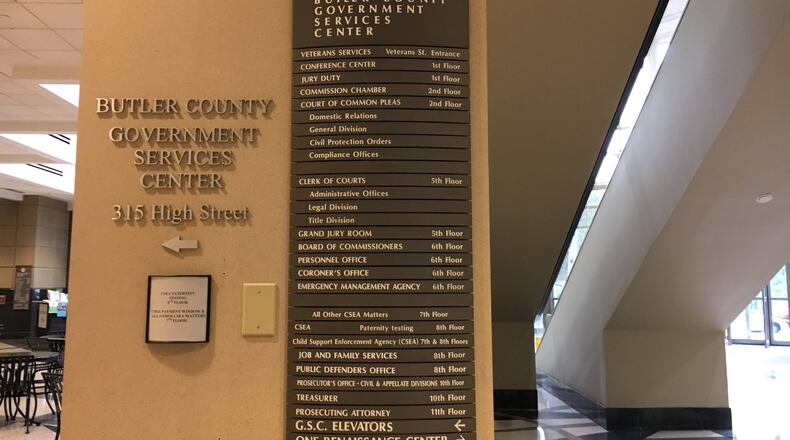“Over the last six weeks, staff and the commissioners’ consultant Horan have been analyzing utilization and budgets as it relates to 2019 health care experience and working with United Healthcare to receive a renewal quote,” Boyko said. “Although the details have not all been finalized it appears our renewal will be contained to approximate 8 percent increase.”
RELATED: Butler County insurance negotiations may save $4 million
The county went to a self-insurance model in 2017 after several years of double-digit increases for insurance coverage. The prime-movers behind the rate hikes were some large once-in-a-lifetime claims over several years. They had a single $5 million claim in 2013 and a $3 million month in November 2014.
Under the self-insured plan, the county pays an administrative fee and the claims themselves. There is a stop-gap feature so if claims top the $175,000 mark, the insurance carrier picks up the costs for anything over that amount.
Boyko said until all of the claims are reconciled for this year she won’t have firm numbers for the total insurance cost. This year, it was expected to be about $20 million.
Facing a 24 percent rate hike for 2019, the commissioners went shopping for a new provider last year. The health insurance contract sparked uncharacteristic discord among the commissioners with a 2 to 1 vote in favor of Medical Mutual of Ohio.
“I have never more strongly disagreed with the decision of this board of commissioners, nor any previous board of commissioners since I’ve been an elected official,” Commissioner Cindy Carpenter said after an October 2018 executive session on the issue.
“I believe in my heart that this is completely the wrong decision to make.”
Then two weeks later, the commissioners did an about face, canceled the deal with MMO and hired United Healthcare.
Boyko said there are several different plans employees can choose from that can impact how much their portion of the bill will cost, but generally the commissioners foot about 82 percent of the bill.
Commissioner Don Dixon said the news that the rate increase wouldn’t be exorbitant was welcome.
“It’s good,” he said. “Our claims are down, our rate expense is down, the big claims are down. They kept saying that they really shouldn’t be that high for our classification but something happened. They said we should come down and it’s coming down so that’s good news.”
Boyko said there are any number of things that contribute to the annual rate hikes.
“There is more at play than utilization,” Boyko said. “Utilization is by far the primary driver of insurance costs and corresponding increases for renewals, however there are so many other factors that are integrated into the calculations for rate increases, cost of goods, cost of doing business by the provider, there are so many factors that contribute to the premium.”
MORE: Rate hikes may force a Butler County health insurance switch
Commissioner T.C. Rogers said he didn’t want to say too much about the insurance plan because it isn’t final, but the county will continue to provide the valuable benefit.
“We’re still going to maintain a good package compared to other government entities and we’re going to maintain our history of being fair,” Rogers said.
Carpenter could not be reached for comment.
Health insurance was such a drag on the budget this year Keels took out the annual $2 million transfer to the rainy day fund. Dixon voted to approve the the structurally balanced $102 million general fund budget, but directed Keels to find $2 million by the end of the year to reinstate the annual contribution to the reserve fund.
The rainy day fund balance was at $8 million to start the year, Boyko said the fund will have a $10 million balance by year’s end.
About the Author
